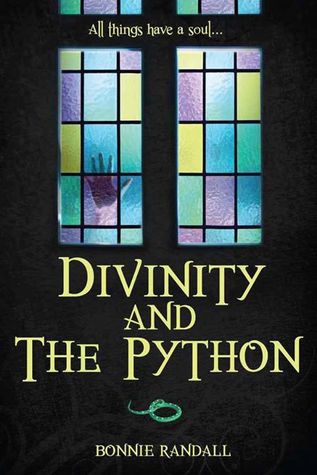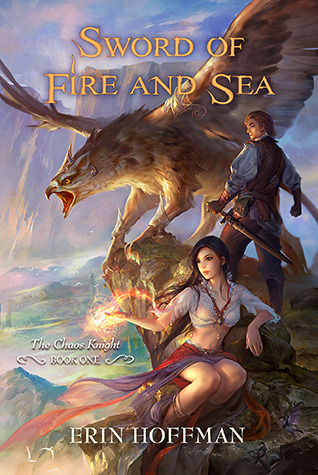This is my eleventh book review for the Women of Genre Fiction Reading Challenge at Worlds Without End.
 I believe the publisher calls Divinity and the Python by Bonnie Randall a paranormal romantic thriller (note: not paranormal romance, which is a related but different corner of the genre). I’d have to agree. It’s sexy, it’s spooky, and the tension keeps ratcheting up all the way to the end.
I believe the publisher calls Divinity and the Python by Bonnie Randall a paranormal romantic thriller (note: not paranormal romance, which is a related but different corner of the genre). I’d have to agree. It’s sexy, it’s spooky, and the tension keeps ratcheting up all the way to the end.
Our heroine is Shaynie Gavin, a carpenter—an artist, really—who’s making money tending bar at the Python while fixing up Divinity, an old morgue, to be a Tarot parlor and New Age lounge. While the romance is great, the most important relationship in Shaynie’s life through most of the book is with Divinity. Like it says on the cover, all things have a soul, and Divinity is most definitely a character. For those not open to the paranormal, Divinity’s interactions give off a creepy vibe, but for Shaynie, Divinity is protection, friendship, home. From the sound of the furnace to the well-timed unlocking of doors and switching of lights, Divinity is imbued with personality.
Shaynie herself is great. Though I don’t believe in it, it’s nice to see a Tarot-reading character who absolutely believes and whose belief permeates every aspect of her life. The Tarot descriptions are subtle, and the only time the fortune-teller-fraud or flaky-new-ager clichés show up are when Shaynie is bracing herself to face them. I found it interesting that while the Tarot may have helped Shaynie stay on her guard, it also nearly ruined her romance. I suppose whether you believe or not, a Tarot reading is really about knowing yourself, and even the most self-aware of us has blind spots.
The dialogue sparkled, the looming threat sent chills up my spine, and I got some serious shivers when the romance started to heat up. The obstacles keeping them apart were very real, nothing that felt like it could be waved away with a single conversation.
Two big thumbs up, and I’ll be looking for the follow-up in 2014.

 Jaida Jones was my random author pick for the Women of Genre Fiction challenge, so I went into
Jaida Jones was my random author pick for the Women of Genre Fiction challenge, so I went into  I really enjoyed
I really enjoyed 
 The problem with trying to write a review of
The problem with trying to write a review of